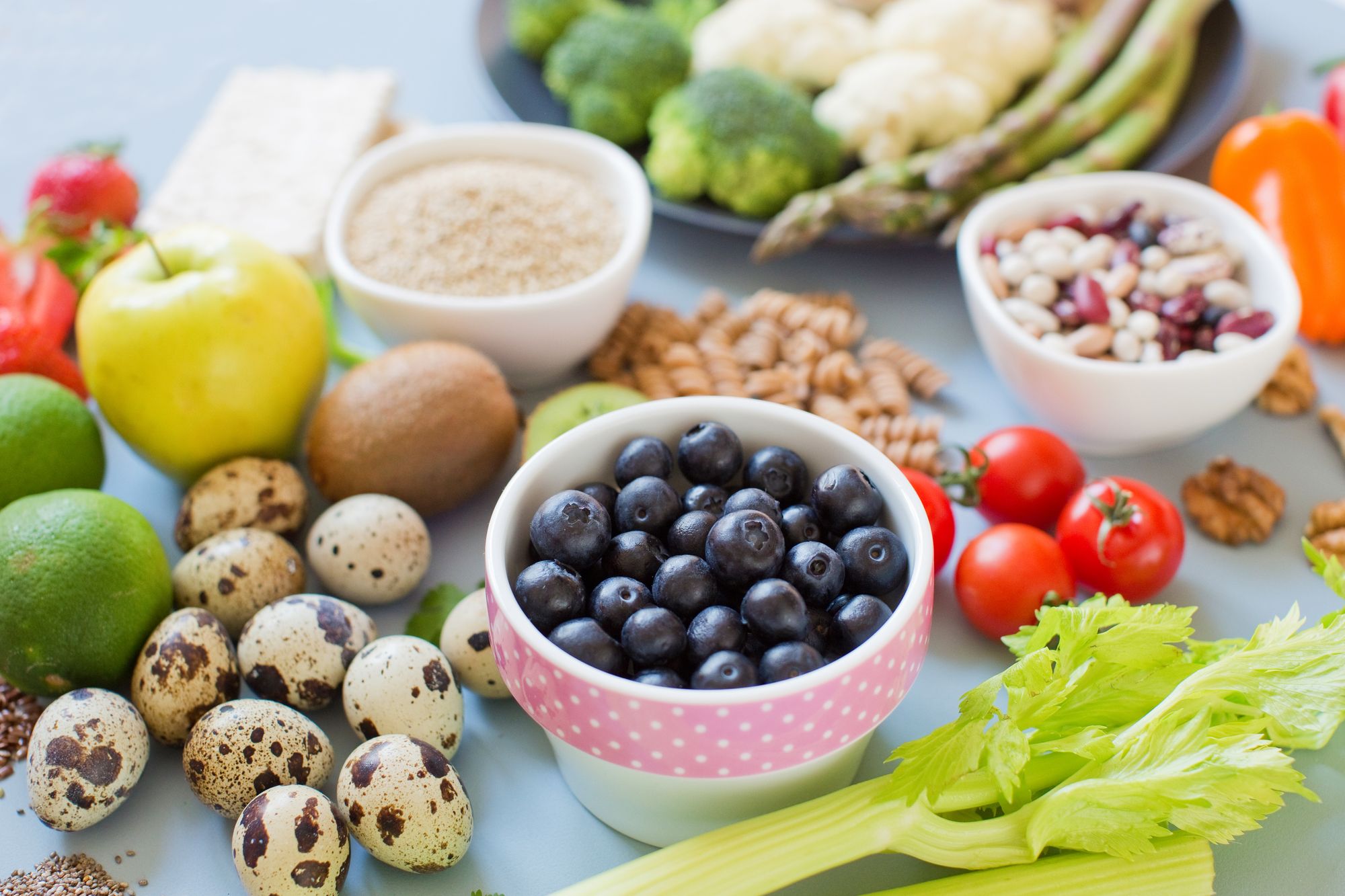Inflammation is a common experience for most people, whether it's chronic, acute, or a combination of both. In simple terms, it can be described as the body's response to injury or bacterial infection, characterized by symptoms like pain, redness, swelling, and heat. In one sense, inflammation is a crucial part of the body's defense mechanism. When faced with an acute injury or bacterial illness, the immune system dispatches inflammatory cells to the affected area to initiate the healing process. However, if your body consistently triggers these responses in the absence of injury or infection, it may indicate chronic inflammation. Chronic inflammation, lasting for months or even years, is closely associated with health issues such as diabetes and cardiovascular disease.
Numerous factors can contribute to chronic inflammation, including stress, smoking, pre-existing medical conditions, excessive alcohol consumption, and an unhealthy diet. Regarding dietary habits, which specific ones can lead to increased inflammation? To answer this question, we conducted a comprehensive review of existing research and consulted with Lauren Manaker, MS, RDN.
1) You're Consuming a Higher Quantity of Processed Meat Compared to Fresh Meat

Manaker explains that processed meats, including bacon, sausage, and lunchmeats, contain advanced glycation end products (AGEs), which have the potential to induce inflammation in the body. She further notes that AGEs are created when reducing sugars react with proteins at high temperatures. While these compounds can enhance the flavor of food, they may not be conducive to overall health.
Processed meats are often chosen for their convenience, affordability, and extended shelf life compared to regular meat. However, if you aim to reduce inflammation, it's advisable to limit your intake of processed meats. Alternatively, you can opt for fish or plant-based protein sources such as tofu or tempeh as meat substitutes.
2) You've Been Consuming a Significant Number of Artificial Sweeteners

This aspect can be somewhat perplexing because excessive added sugar can contribute to increased inflammation. However, sugar alternatives like artificial sweeteners have also been associated with inflammatory responses.
Manaker highlights a study published in Nature, which reveals that the consumption of artificial sweeteners can alter the composition of gut bacteria. In particular, it can lead to a reduction in the levels of "beneficial bacteria" responsible for producing anti-inflammatory compounds.
Additionally, Manaker suggests an alternative for those seeking sweetness: 100% pure maple syrup from Canada. This syrup contains a distinct compound called quebecol, known for its anti-inflammatory effects on the body.
3) You're Still Using Margarine in Your Cooking

If margarine is a regular part of your cooking routine, it might be time to reassess your choice. Many margarine varieties contain trans fats, which are known to trigger systemic inflammation. While some margarines available in stores now claim to be trans fat-free, it's crucial to carefully scrutinize the labels for verification.
Research published in The American Journal of Clinical Nutrition has established a significant link between trans fats and inflammation, impacting both premenopausal and postmenopausal women. This study revealed that, irrespective of BMI levels, the inflammatory consequences of trans fats were applicable, even though women with higher BMI showed an elevated risk factor.
4) You're Consuming White Bread

Frequently consuming heavily processed carbohydrates such as white bread can result in various undesirable health consequences. A study published in Mediators of Inflammation indicates that processed carbohydrates and refined sugar can elevate the risk of systemic inflammation.
This is primarily due to the rapid spike in blood sugar levels that occurs when we consume carbohydrates with significant amounts of added sugar. As our bodies strive to metabolize these sugars, they trigger an inflammatory response.
5) You're Eating Late at Night

Sometimes, it's not only about the content of your meals but also the timing. If you frequently indulge in late dinners or bedtime snacks, you might be susceptible to heightened inflammation.
Research published in PLOS One unveiled a connection between consuming larger meals in the evening and elevated inflammation. Furthermore, the study identified a correlation between the intake of calories after 5 p.m. and increased levels of CRP, a natural biomarker of inflammation and other chronic conditions.
6) You're Consuming an Excessive Amount of Red Meat

We previously mentioned the presence of Advanced Glycation End Products (AGEs) in processed meats, but it's worth noting that unprocessed red meat can also contain these compounds.
Excessive consumption of AGEs has been associated with inflammation in the body, and red meat is one of the food groups with the highest AGEs content. Additionally, the cooking method plays a crucial role in a food's AGEs levels, with grilling, broiling, and pan-frying being linked to elevated AGEs levels. Cooking red meat, in particular, using these methods may contribute to inflammatory effects.
7) You are Consuming an Excessive Amount of Added Sugar

Consuming a high number of sugar-laden foods can result in elevated inflammation levels, as noted by Manaker. "Added sugars, especially those present in processed foods and beverages, have a strong association with inflammation, and these sugars can elevate the levels of inflammatory messengers known as cytokines," she explains.
Additionally, a report published in Frontiers in Immunology underscores that diets rich in processed sugar can contribute to inflammatory conditions such as rheumatoid arthritis, inflammatory bowel disease, psoriasis, and multiple sclerosis.
8) You Aren't Eating Enough Fruits and Vegetables

If you're dealing with excessive inflammation, it could be an indicator that you should include more fruits and vegetables in your diet.
The inclusion of fruits and vegetables in your diet is a potent approach to combat inflammation since these food categories are abundant in antioxidants and anti-inflammatory substances that can notably decrease inflammatory indicators in the body, explains Manaker. If you're not regularly consuming enough fruits and vegetables, you might be missing out on the anti-inflammatory advantages.
Research supports this notion. A study published in The American Journal of Clinical Nutrition suggests that in addition to reducing inflammatory markers, increasing your intake of fruits and vegetables can enhance your immune cells.
9) You're Not Eating Enough Seafood

Seafood, especially fatty fish such as salmon, mackerel, sardines, and trout, is highly advantageous in an anti-inflammatory diet, advises Manaker. These fish varieties are abundant in omega-3 fatty acids, specifically EPA and DHA, which are well-known for their potent anti-inflammatory properties.
Manaker further notes, "For generally healthy individuals, the most recent Dietary Guidelines for Americans recommend a weekly intake of at least 8 ounces of seafood."
It's important to emphasize that consuming fried fish or seafood can have the opposite effect and exacerbate inflammation, so opting for grilled or baked preparations is advisable.
10) You Consume Far Too Much Fast Food

Fast food, often characterized by heavy frying and processing, is best limited when aiming to reduce inflammation.
A study published in the journal Cell suggests that a diet heavily reliant on fast food choices can trigger an inflammatory response and potentially harm the immune system, notes Manaker.
To opt for a more anti-inflammatory meal, Manaker recommends considering alternatives such as packing your own lunch instead of opting for a supersized fast-food meal.

